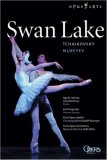 A Midsummer Night's Dream - Britten | DVD | (09/01/2006)
from £N/A
| Saving you £N/A (N/A%)
| RRP
A Midsummer Night's Dream - Britten | DVD | (09/01/2006)
from £N/A
| Saving you £N/A (N/A%)
| RRP Britten's opera recorded live at the Teatro Del Liceu in April 2004.
 Landi - Sant' Alessio | DVD | (19/05/2008)
from £N/A
| Saving you £N/A (N/A%)
| RRP
Landi - Sant' Alessio | DVD | (19/05/2008)
from £N/A
| Saving you £N/A (N/A%)
| RRP First performed at the Palazzo Barberini in Rome in 1632 Landis Sant Alessio (Saint Alexius) is recognised as the earliest opera on an historical rather than mythological subject. Staged in Caen (where the DVD was filmed) and Paris in October 2007 the opera was subsequently presented in concert form in London and New York and is scheduled for the opera houses of Luxembourg and Nancy in early 2008.
![Offenbach - La Vie Parisienne (Rouland) [2008]](/pictures/1090300.jpg) Offenbach - La Vie Parisienne (Rouland) | DVD | (03/11/2008)
from £12.99
| Saving you £-4.00 (N/A%)
| RRP
Offenbach - La Vie Parisienne (Rouland) | DVD | (03/11/2008)
from £12.99
| Saving you £-4.00 (N/A%)
| RRP OFFENBACH: La vie parisienne - Sebastien Rouland/ Laurent Pelly.
![Dancer's Dream - The Great Ballets Of Rudolf Nureyev - Raymonda [1999]](/pictures/1028322.jpg) Dancer's Dream - The Great Ballets Of Rudolf Nureyev - Raymonda | DVD | (01/09/2003)
from £29.50
| Saving you £-9.51 (N/A%)
| RRP
Dancer's Dream - The Great Ballets Of Rudolf Nureyev - Raymonda | DVD | (01/09/2003)
from £29.50
| Saving you £-9.51 (N/A%)
| RRP The story of Raymonda takes place in the Middle-Ages and is set in the south of France. Raymonda is a young noblewoman waiting for the return of her fianc Jean de Brienne a knight who is on a crusade in the Holy Land. Meanwhile however the Saracen knight Abderachman appears on the scene and first of all pays her court but then uses force to try and make her bend to his will. Thanks to the warning and help of a ghost who is thought to be an ancestor and patron saint of her family
![Prokofiev: War and Peace (La guerre et la paix) -- Paris Opera/Bertini [2000]](/pictures/1028301.jpg) Prokofiev: War and Peace (La guerre et la paix) -- Paris Opera/Bertini | DVD | (29/09/2003)
from £9.62
| Saving you £21.63 (258.73%)
| RRP
Prokofiev: War and Peace (La guerre et la paix) -- Paris Opera/Bertini | DVD | (29/09/2003)
from £9.62
| Saving you £21.63 (258.73%)
| RRP From the opera National de Paris TDK presents Prokofiev's monumental opera War and Peace in a tremendous production directed by Francesca Zambello.Based on Tolstoy's famous novel War and Peace is an opus of exceptional scale. Over 70 figures make up the enormous lyrical formation. The story tells of the fate of a Russian aristocrat who is overcome with shock at Napoleon's invasion. The core of the drama set against the backdrop of the war is the passionate love between the young Natacha Rostov to the Prince Andrei Bolkonski.
 Massenet: Manon -- Paris Opera/Lopez-Cobos | DVD | (30/01/2006)
from £N/A
| Saving you £N/A (N/A%)
| RRP
Massenet: Manon -- Paris Opera/Lopez-Cobos | DVD | (30/01/2006)
from £N/A
| Saving you £N/A (N/A%)
| RRP A performance of the Massenet opera 'Manon'. The Paris National Opera Orchestra and Chorus are conducted by Jesus Lopez-Cobos.
 Tchaikovsky - Swan Lake | DVD | (02/01/2007)
from £25.12
| Saving you £1.13 (4.74%)
| RRP
Tchaikovsky - Swan Lake | DVD | (02/01/2007)
from £25.12
| Saving you £1.13 (4.74%)
| RRP Agnes Letestu, a feminine and warm Odette, Jose Martinez, a convincing, pale vulnerable Prince Siegfried, and Karl Paguette, doubling as a dutiful Wolfgang and an equally devious Rothbart, are the stars of this deeply passionate, 'dream' version of Swan Lake, Rudolf Nureyev's interpretation of Tchaikovsky's lyrical ballet, far from being a cliched stereotype of this celebrated masterpiece, is an expose of astonishingly powerful and recognisable human emotions. Under the inspired and clear-cut musical direction of Vello Pahn, this production of one of the jewels of the Paris Opera Ballet's repertoire brilliantly displays the meticulous precision, technical prowess and pure, unmanbnered style of the company's unrivalled female corps de ballet, eliciting an ethereal, intense beauty, captured for DVD in High Definition video and superb surround sound.
![Rudolf Nureyev's Don Quichotte [2002]](/pictures/1028409.jpg) Rudolf Nureyev's Don Quichotte | DVD | (03/03/2003)
from £N/A
| Saving you £N/A (N/A%)
| RRP
Rudolf Nureyev's Don Quichotte | DVD | (03/03/2003)
from £N/A
| Saving you £N/A (N/A%)
| RRP Don Quichotte, composed by Ludwig Minkus for the Bolshoi in 1869, was relatively unknown in the West until Nureyev's new choreography--which naturally gave him centre stage as Basile--was introduced at the Vienna State Opera in 1966. A later production in 1981 forms the basis for this 2002 success by the Paris Opera. Don Quichotte is in some ways a misnomer for the ballet. Rather than being the dominant character, here the beloved hero of Cervantes' original novel and tilter at windmills is a catalyst for the troublesome events which beset the love story of Basile and Kitri. The dream in which the knight encounters the queen of the dryads becomes a glittering fault in the narrative. But there is no doubting the fluid delights of the pas de deux between Basile (Manual Legris) and Kitri (the enchanting Aurélie Dupont), always literally several steps ahead of their would-be romance spoilers, which rather overshadow the pathos of Jean-Marie Didière's Quichotte. Nureyev's triumph, though, remains the teeming ensemble dances that reaffirm the close marriage between Minkus's score and the unfolding drama, here immeasurably enhanced by Alexandre Beliaev's Goya-esque designs. Ermanno Florio's musical direction keeps the pace light and busy. On the DVD: Don Quichotte is presented in 16:9 video aspect ratio with a choice of stereo, Dolby Digital 5.1 and DTS (by far the best) soundtracks: the quality is all you'd expect of a standard modern television broadcast, although the subtleties of the theatrical lighting don't always shine through. Extras are limited to previews of other TDK releases. --Piers Ford
![La Sylphide [2004]](/pictures/1045500.jpg) La Sylphide | DVD | (30/05/2005)
from £22.89
| Saving you £2.10 (9.17%)
| RRP
La Sylphide | DVD | (30/05/2005)
from £22.89
| Saving you £2.10 (9.17%)
| RRP The original choreography by Philippe Taglioni had changed ballet forever. It introduced constitutional features of Romantic Ballet as we know it. These include dance en pointe and the tutu which most certainly owe their omnipresence in ballet to the success of the 1832 staging of La Sylphide in Paris. Everything about the event combined to transform the ballet into a magical spectacle: the libretto inspired by romantic literature the bucolic exoticism of the village wedding festivities the dramatic realism of the Sylvan forest the eerie halo of the gas lights the aerial flights of the dancers the long diaphanous tulle costumes and the ballerina's variations en pointes. Through this work ballet master Philippe Taglioni managed to achieve a magical fusion between mime and artistic dance in a light and flowing style that gave birth to the first white act in the history of ballet.
![Tchaikovsky-Pique Dam [2007]](/pictures/1075457.jpg) Tchaikovsky-Pique Dam | DVD | (27/08/2007)
from £N/A
| Saving you £N/A (N/A%)
| RRP
Tchaikovsky-Pique Dam | DVD | (27/08/2007)
from £N/A
| Saving you £N/A (N/A%)
| RRP 'Pyotr Ilyich Tchaikovsky - Pikovaya Dama' 'Pique Dame - The Queen Of Spades - La Dame de Pique'
![Prokofiev: Guerra e Pace - War and Peace [DVD] [2009]](/pictures/1129637.jpg) Prokofiev: Guerra e Pace - War and Peace | DVD | (01/06/2009)
from £38.86
| Saving you £-8.87 (-29.60%)
| RRP
Prokofiev: Guerra e Pace - War and Peace | DVD | (01/06/2009)
from £38.86
| Saving you £-8.87 (-29.60%)
| RRP ARTH 107029; ARTHAUS MUSIK - Germania; Classica Lirica
![Les Contes D'Hoffmann [2002]](/pictures/1028166.jpg) Les Contes D'Hoffmann | DVD | (31/05/2004)
from £N/A
| Saving you £N/A (N/A%)
| RRP
Les Contes D'Hoffmann | DVD | (31/05/2004)
from £N/A
| Saving you £N/A (N/A%)
| RRP Hoffmann a poet and composer is in love with the prima donna Stella. As the opera begins she is appearing in her most famous role: Donna Anna in Mozart's Don Giovanni. Hoffmann's Muse declares that she will win back the artist and protect him from any further amorous obsessions. In order to do so she will assume the identity of Hoffmann's friend Nicklausse.Councillor Lindorf also desires the diva Stella and he bribes her servant Andres into giving him a letter addressed to Hoffmann which contains the key to her dressing room. As the curtain falls on Act I of Don Giovanni Luther and his waiters hurriedly prepare for the arrival of Hoffmann and his friends.Hoffmann is in an agitated state of mind but is soon persuaded to sing the ballad of Kleinzack. While doing so he is distracted and recalls his first love. His friends bring him back to reality and he finishes the song. Suddenly Hoffmann sees Lindorf and a heated argument develops between them. Hoffmann reveals that Lindorf has always brought him bad luck. When three of the poet's friends boast about their mistresses Hoffmann declares that Stella embodies three types of woman: the young girl the artist and the courtesan. Hoffman asks his friends if they would like to hear about three of his past loves. Despite Luther's warning that the curtain is about to rise on Act II of Don Giovanni the crowd fill their glasses and prepare to listen to Hoffmann's tales.
![Massenet: Manon [DVD] [2009]](/pictures/1128530.jpg) Massenet: Manon | DVD | (01/09/2009)
from £32.38
| Saving you £-2.39 (N/A%)
| RRP
Massenet: Manon | DVD | (01/09/2009)
from £32.38
| Saving you £-2.39 (N/A%)
| RRP Manon (2 Dvd)
![Tchaikovsky - Swan Lake [HD DVD] [2007]](/pictures/1070968.jpg) Tchaikovsky - Swan Lake | HD DVD | (02/04/2007)
from £N/A
| Saving you £N/A (N/A%)
| RRP
Tchaikovsky - Swan Lake | HD DVD | (02/04/2007)
from £N/A
| Saving you £N/A (N/A%)
| RRP ![Mozart - Die Zauberflote [2001]](/pictures/1079877.jpg) Mozart - Die Zauberflote | DVD | (29/10/2007)
from £N/A
| Saving you £N/A (N/A%)
| RRP
Mozart - Die Zauberflote | DVD | (29/10/2007)
from £N/A
| Saving you £N/A (N/A%)
| RRP Wolfgang Amadeus Mozart: Die Zauberfloete, performed by various performers and conducted by Ivan Fischer.

Please wait. Loading...
This site uses cookies.
More details in our privacy policy